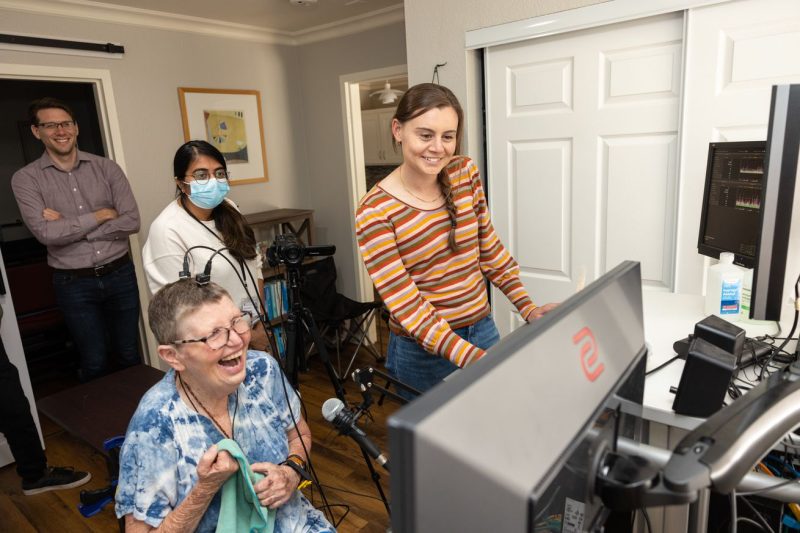Both studies show that it’s possible to decode brain signals into speech at a rate of about 60–70 words per minute. | Image: Stanford
Two separate studies published today in Nature indicate that, in the future, brain-to-computer interfaces (BCI) could help restore communication for people who can’t speak due to severe paralysis. In both studies, researchers used brain implants that could pick up brain signals, which were then translated into sentences on a screen using algorithms. While this isn’t a new concept, the exciting thing is that both research teams were able to do this much faster and more accurately than existing technologies.
In the study from Stanford, researchers implanted electrodes into the brain of a patient with amyotrophic lateral sclerosis (ALS) in two areas associated with speech. The BCI was designed to detect brain activity when the patient was…
